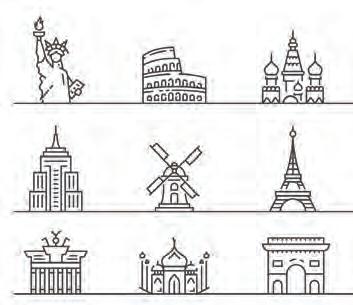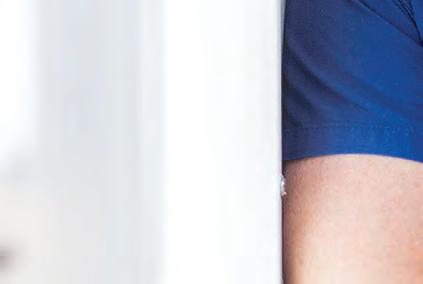
4 minute read
WATCH YOUR LANGUAGE
Some words are so regularly used in the wrong context that they have become an accepted part of the language. ALLISON WHITE discusses a popular usage that rubs her up the wrong way.
Most of us have words that grate. I have a few, such as “kick off” rather than just saying begin or launch, and memorials stating the dearly departed “left behind” a list of loved ones.
Advertisement
I don’t feel left behind because I’m still alive, but I sure have felt “left”.
But at the top of my list, the biggest annoyance of all, is the downright abuse of the word “iconic”.
Only in recent years has it crept into the vernacular to cover everything from athletes and film stars to buildings, logos, streets and anything else considered to be vaguely remarkable.
The Oxford dictionary definition is: “of, pertaining to, or resembling an icon” and the definition of an icon is “likeness, image, similitude; a portrait especially of an animal or plant in a book of natural history; an image in traditional Byzantine style of Jesus or a holy person venerated in the Orthodox church.”
It was given additional meaning around 1987, when it was introduced to refer to the computer screen picture clicked on to open a program. Some of these icons have since turned into emojis.
But even in the popular context of “a Are we looking at icons or landmarks? person or thing that is revered or idolised” it cannot be spread so wide as to include inanimate street scenes, animated characters, actions, and, well, pretty much anything.
Old buildings may be historic or perhaps a landmark without being iconic.
The Titanic was an ill-fated passenger liner, unlucky, tragic even, but there’s nothing iconic about it.
Then I spotted an Anzac Day reference to the “iconic game of two-up”. A game popular among old soldiers, it is a traditional game, an Aussie favourite, typically Australian, but it’s not my idea of an icon. “The iconic poppies” also regularly turn up on Remembrance Day. They are red, symbolic, synonymous with remembrance, wartime memorials from the Flanders fields, but calling them iconic is a failure to find a better, more descriptive and perhaps, a more appropriate word.
I once saw a reference to the “iconic Victoria’s Secret parade”. Seriously?
I find it hard to imagine that a lingerie fashion parade that came from a clever marketing idea for a commercial brand less than three decades ago could ever aspire to being iconic.
A magazine reported on the “iconic superhero Aquaman”. Wow. It beggars belief that a comic book hero could measure up as an icon.
Cinematic hero, or underwater superhero is more than adequate.
Then comes the long list of geographical landmarks.
The Gold Coast, for example, is not an iconic region but a popular, beautiful, glitzy holiday location or specifically, a wellknown tourist/surfing/fishing magnet.
An old hotel or department store is not an iconic space, but it may be a landmark or historic, significant, famous, celebrated or notable.
Even the Eiffel Tower can be much more than a Paris icon – it is one of the world’s most recognizable landmarks, a celebrated piece of French history, a popular attraction.
People too can be much more than icons. They can be celebrated, renowned, clever, talented, entrepreneurial, famous and popular or rogues, villains, rascals and scoundrels.
And as for footballers, don’t we have enough ridiculous superlatives – heroes, superheroes, legends, immortals – we don’t need to add iconic to the list.
The English language has so many descriptive words, it suggests laziness not to use the best word to describe something – monuments, milestones, memorials, benchmarks , or as the thesaurus suggests: archetypal, exemplary, paradigmatic, ideal, important, seminal, supreme, traditional, recognisable.
Or perhaps, the word has become so iconic that it’s time for the lexicographers to simply change the definition, at least I don’t feel the need to rant and rave every time I have an iconic moment.
Are you considering hip or knee replacement surgery?


Dr. Daevyd Rodda is a highly experienced and innovative hip and knee replacement surgeon based on the Sunshine Coast. He leads a specialised, multi-disciplinary team and regularly trains Australian and International surgeons in advanced techniques including: • Anterior, minimally invasive total hip replacement • Patient specific and Robotic knee replacement • Complex revision hip and knee replacement

Telehealth appointments available for regional patients.

Contact us today to discuss your treatment options, or register for our free patient seminars. Phone: 07 5493 8038 | www.scorthogroup.com.au

Dr Daevyd Rodda Orthopaedic Surgeon










